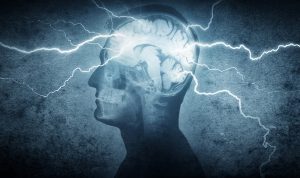
Think They Don’t Electroshock People Anymore? Think Again–Even toddlers and pregnant women are being shocked
Ask the average person about the use of electroshock treatment in today’s society and 9 out of 10 will respond, “They still shock people?”


Ask the average person about the use of electroshock treatment in today’s society and 9 out of 10 will respond, “They still shock people?”
After reports that most donations made to the big advocacy group came from drug makers in recent years, the National Alliance on Mental Illness (NAMI) agreed to disclose its funding sources. The disclosure, however, came after protracted criticism of NAMI for coordinating lobbying efforts with drug makers and pushing legislation that also benefits the pharma industry.
Senator Grassley’s letter states, “Operating with transparency sends a message that there is nothing to hide. Accordingly, I would appreciate an accounting of industry funding that pharmaceutical, medical device companies, foundations established by these companies or the insurance industry have provided to the TeenScreen National Center for Mental Health Checkups at Columbia University (TeenScreen) (The term ‘industry funding’ means any transfer of value, including but not limited to grants, donations, and sponsorship for meetings or programs, etc.) This request covers the period of January 2006 to the present.”
An ongoing U.S. Senate investigation headed by Senator Charles Grassly has sought disclosure of pharmaceutical funding paid to researchers, physicians, medical schools, medical journals and the patient advocacy community. Some of the nation’s most prominent psychiatrists have now been exposed for extensive conflicts of interest amounting to millions in undisclosed pharmaceutical funding, including Dr. Charles Nemeroff, Dr. Joseph Biederman, Dr. Melissa DelBello, Dr. Timothy Wilens, Dr. Thomas Spencer, Dr. Alan Schatzberg, Dr. Martin Keller, Dr. A. John Rush, Dr. Karen Wagner, Dr. Jeffrey Bostic and Dr. Frederick Goodwin — many of which serve as advisory board members to mental illness “advocacy groups” which are now also the subject of the Senate investigation for their undisclosed pharmaceutical funding.
The majority of the public may or may not be familiar with these so-called mental health advocacy organizations, such as the National Alliance on Mental Illness (NAMI), Children and Adults with Attention Deficit Hyperactivity Disorder (CHADD) or the myriad of bipolar, depression or ADHD “support groups” that are inundating the internet. But they need to be.
Senator Grassley has asked 33 medical groups for information about their financial backing they get from the medical device, insurance and pharmaceutical industries, including several psychiatric front groups such as Children and Adults with Attention Deficit/Hyperactivity Disorder (CHADD), Depression and Bipolar Support Alliance, Mental Health America, NARSAD, Screening for Mental Health Inc. and the National Center for Mental Checkups at Columbia University (TeenScreen).